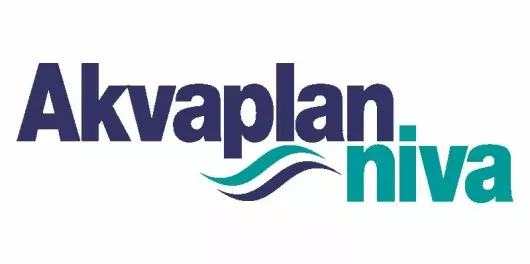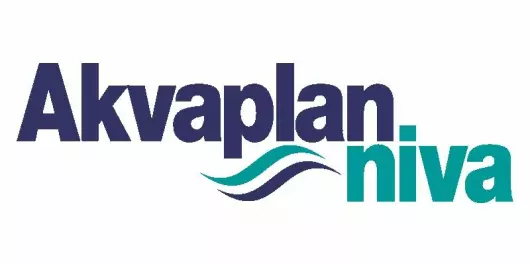Ledig stilling på Universitetet i Oslo
Blindern og Urbygningen (Foto: Wikimedia og Colourbox)
PhD Research Fellowship in Ecotoxicology
Deadline 01.02.2019
Job description
Universitetet i Oslo
The University of Oslo is Norway’s oldest and highest rated institution of research and education with 28 000 students and 7000 employees. Its broad range of academic disciplines and internationally esteemed research communities make UiO an important contributor to society.
Department of Biosciences (IBV) is one of nine departments at the Faculty of Mathematics and Natural Sciences. Research in the department is organised in five sections covering topics within biochemistry, molecular biology, physiology, cell biology, genetics,
aquatic biology, toxicology, ecology, and evolutionary biology. Education across these topics is offered for around 380 bachelor, 170 master, and 75 PhD students. With 52 permanent professors/associate professors, post-docs, researchers, technical, and administrative personnel, the Department has a total staff of 340 from more than 30 different countries. The Department aims to maintain high international standards within both research and teaching. The new bachelor program in bioscience is the first of its kind to include programming and computational modelling as core elements.
Position as PhD Research fellow is available at Section for Aquatic Biology and Toxicology (AQUA), Department of Biosciences, University of Oslo (UiO).
The position is affiliated with the research project The Nansen Legacy (http://nansenlegacy.org). The Nansen Legacy is the Norwegian Arctic research community’s joint effort to establish a holistic understanding of a changing marine Arctic climate and ecosystem. The project will provide a scientific knowledgebase needed for future sustainable resource management in the transitional Barents Sea and the adjacent Arctic Basin. It is a collaborative project between ten Norwegian research institutions, and will run from 2018-2023. Activities in the project will include international cooperation, and several cruises with the new, ice-going research vessel Kronprins Haakon.
As part of the Nansen Legacy, the available PhD is within the task Pollution, hereunder the project “Effects of changes in species composition, physiology and distribution on contaminant accumulation in food webs”. The Arctic is susceptible to local pollution from petroleum activities and shipping, as well as long-range transported pollutants (e.g., persistent organic pollutants, metals, and emerging contaminants). Changes in water temperature and distribution and thickness of sea ice are expected to change energy and contaminant transfer processes in the food web. Zooplankton and fish samples will be collected seasonally during the Nansen Legacy cruises. From these, chemicals and dietary descriptors will be analysed to investigate how seasonality in energy acquisition and allocation affects the annual dynamics of contaminant accumulation and transfer in the food web.
The project combines knowledge from ecotoxicology, ecology, and environmental chemistry. The successful candidate will design and conduct extensive field studies, analyze contaminants and dietary descriptors, and deal with large datasets.
Host institution and international partner institution
The PhD project and training will be based at the Aquatic Biology and Toxicology (AQUA), Department of Biosciences, University of Oslo, with collaboration with The University Centre in Svalbard (UNIS) and the Norwegian Polar Institute (NPI).
Toxicological research at AQUA aims to understand how organisms and ecosystems are affected by environmental changes and stressors, and how we can manage the environment and resources. Research at AQUA is characterized by the integration of observational and experimental field studies, laboratory experiments and analyses, statistical and mechanistic modeling.
The PhD will be under the main supervision of Prof. Katrine Borgå, with co-supervision by Prof. Tom Andersen (UiO), Prof. Øystein Varpe (UNIS) and Dr. Geir Wing Gabrielsen (NPI).
More about the position
The fellowship will be for a period of 3 years, with no compulsory work, or for a period of 4 years, with 25 % compulsory work (e.g. teaching responsibilities at the department) contingent on the qualifications of the candidate and the teaching needs of the department.
Tentative starting date: May 1st 2019.
No one can be appointed for more than one fixed-term period at the same institution.
Qualification requirements
The Faculty of Mathematics and Natural Sciences has a strategic ambition of being a leading research faculty. Candidates for this fellowship will be selected in accordance with this, and is expected to be in the upper segment of their class with respect to academic credentials.
We kindly ask applicants to provide a numbered list in their application letter corresponding to these criteria, explaining whether and how they meet each point:
1. A Master’s degree or equivalent in toxicology or marine ecology, relevant to this PhD project.
2. Academic qualifications (grades and relevant research experience). Candidates are expected to be in the upper segment of their class.
3. A background and/or strong interest in one or more of the following topics: i) ecotoxicology, ii) dietary ecology, iii) life cycles and phenology, vi) marine ecology.
4. Strong practical and analytical skills.
5. Ability to perform extensive laboratory and field work, chemical analysis and statistical data treatment
6. Personal suitability and motivation for the position.
7. A good command of the English language.
8. Good social and collaboration skills and ability to work independently and in an interdisciplinary scientific environment.
The purpose of the fellowship is research training leading to a successful completion of a PhD degree. The fellowship requires admission to the research training program at the University of Oslo.
The application to the PhD program must be submitted to the department no later than two months after taking up the position. For more information see:
http://www.uio.no/english/research/doctoral-degree-and-career/phd/application/
http://www.mn.uio.no/english/research/doctoral-degree-and-career/phd-programme/index.html
A good command of English is required:
http://www.mn.uio.no/english/research/phd/application/application.html
We offer
- salary NOK 449 400 – 515 200 per annum depending on qualifications in a position as PhD Research fellow, (position code 1017)
- attractive welfare benefits and a generous pension agreement, in addition to Oslo’s family-friendly environment with its rich opportunities for culture and outdoor activities
How to apply
The application must include
- Application letter, including a pointwise explanation of how the applicant fits the selection criteria detailed above.
- CV (summarizing education, positions and academic work - scientific publications).
- Copies of educational certificates, transcript of records and letters of recommendation.
- Documentation of English proficiency (for applicants from non-EU/EEA countries).
- List of publications and academic work that the applicant wishes to be considered by the evaluation committee.
- Names and contact details of 2-3 references (name, relation to candidate, e-mail and telephone number).
- A short text that outlines the candidate´s motivation and ideas for a project within the described field of research (1-2 pages).
The application with attachments must be delivered in our electronic recruiting system, please follow the link “Apply for this job”. Foreign applicants are advised to attach an explanation of their University's grading system. Please note that all documents should be in English (or a Scandinavian language).
Applicants may be called in for an interview.
Formal regulations
Please see the guidelines and regulations for appointments to Research Fellowships at the University of Oslo.
According to the Norwegian Freedom and Information Act (Offentleglova) information about the applicant may be included in the public applicant list, also in cases where the applicant has requested non-disclosure.
The appointment may be shortened/given a more limited scope within the framework of the applicable guidelines on account of any previous employment in academic positions.
The University of Oslo has an agreement for all employees, aiming to secure rights to research results etc.
Contact information
For further information please contact:
For questions regarding the recruitment system, please contact>
Apply for this job














